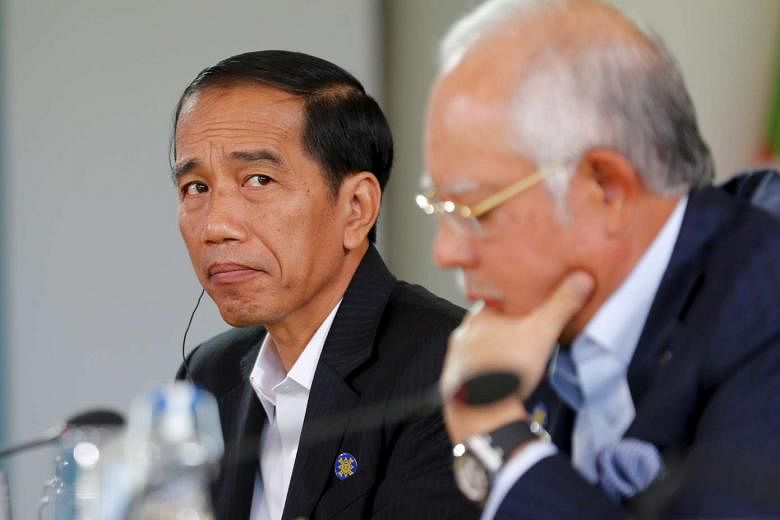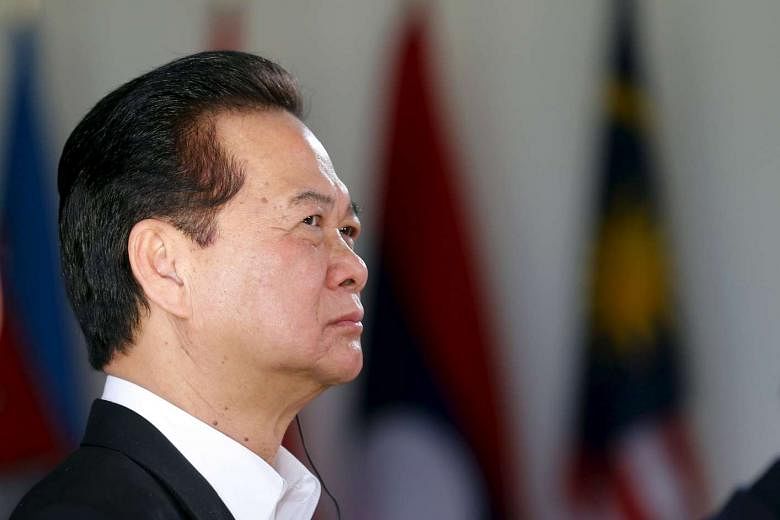US President Barack Obama has underscored the importance of US-Asean relationship at a key summit, saying the region was central to peace and prosperity in the Asia-Pacific.
"As president, I've insisted that even as the United States confronts urgent threats around the world, our foreign policy also has to seize on new opportunities. And few regions present more opportunity to the 21st century than the Asia-Pacific," Mr Obama said at the start of a two-day US-Asean summit in Sunnylands, a resort in the Californian desert, on Monday (Feb 15) US time.
"That's why, early in my presidency, I decided that the United States, as a Pacific nation, would rebalance our foreign policy and play a larger and long-term role in the Asia-Pacific.
"And this has included engagement with South-east Asia and Asean, which is central to the region's peace and prosperity, and to our shared goal of building a regional order where all nations play by the same rules."
Singapore Prime Minister Lee Hsien Loong and leaders from the nine other Asean countries are attending the landmark meeting, which marks the first time the US is hosting the leaders of Asean.
Much has been made about the symbolism of the meeting already, especially given that the US has chosen to hold it at the same place where Mr Obama met Chinese President Xi Jinping in 2013.
At the opening session, Mr Obama outlined several challenges that he hoped to discuss with Asean leaders at the summit. For instance, he hoped the leaders would be able to step up cooperation on counter-terrorism and climate change.
"As we were reminded again by the attack in Jakarta last month, the scourge of terrorism demands that we stay vigilant, share more information and work cooperatively to protect our people. Just as our nations worked together to achieve a strong climate change agreement in Paris, now we need to implement that agreement and step up investment in clean, affordable energy, including for developing countries," he said.
On economic policy, Mr Obama said that he hoped leaders would do more to encourage entrepreneurship and innovation.
Mr Lee also spoke about the importance of promoting entrepreneurship and innovation during the meetings, saying it was important for Asean governments to create value, and not just lower costs.
To do that, he proposed three steps Asean leaders could take: pursue greater economic integration within the Asean community; cultivate a business-friendly environment; and promoting both public and private sector investment in research.
He also welcomed US efforts to help build innovative and entrepreneurial economies in Asean.
"There is a great deal we can learn from the American entrepreneurial culture as well as the strengths of US business community and private sector," said Mr Lee, who had met Silicon Valley leaders in San Francisco before the summit.
Though China was not mentioned in Mr Obama's opening remarks on Monday, he did make reference to the need for stability in the region.
"In recent years, the United States has increased our maritime security assistance to our allies and partners in the region, improving our mutual capabilities to protect lawful commerce and to respond to humanitarian crisis.
"Here at this summit, we can advance our shared vision of a regional order where international rules and norms, including freedom of navigation, are upheld and where disputes are resolved through peaceful, legal means," he said.







